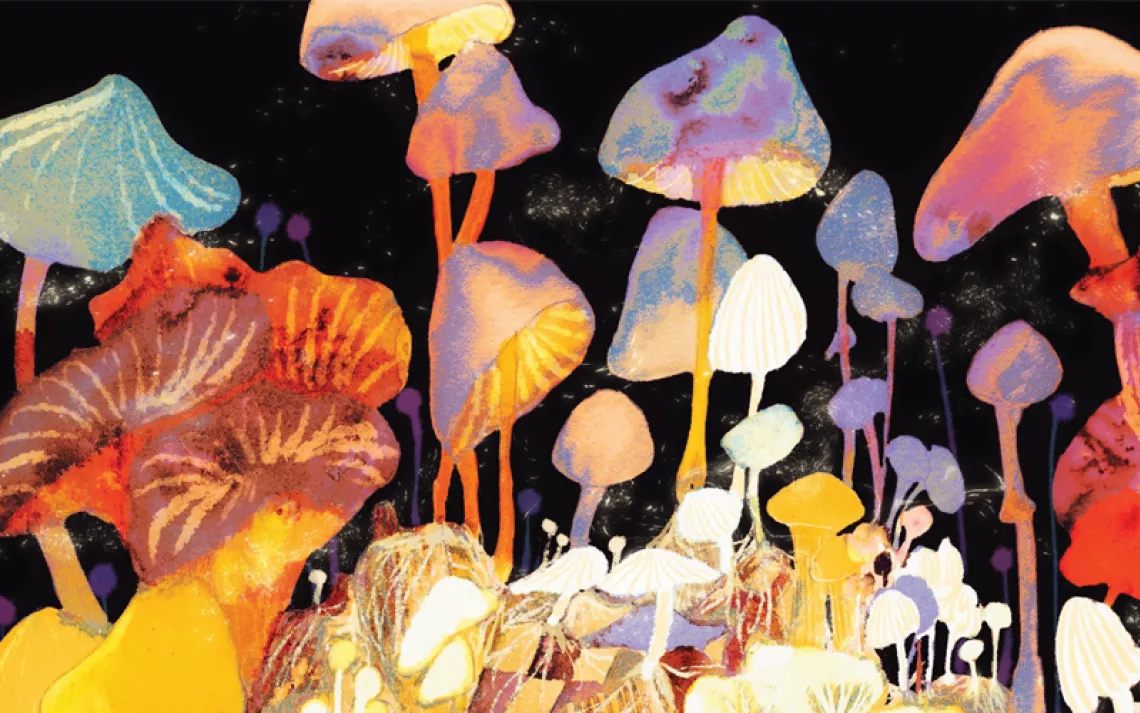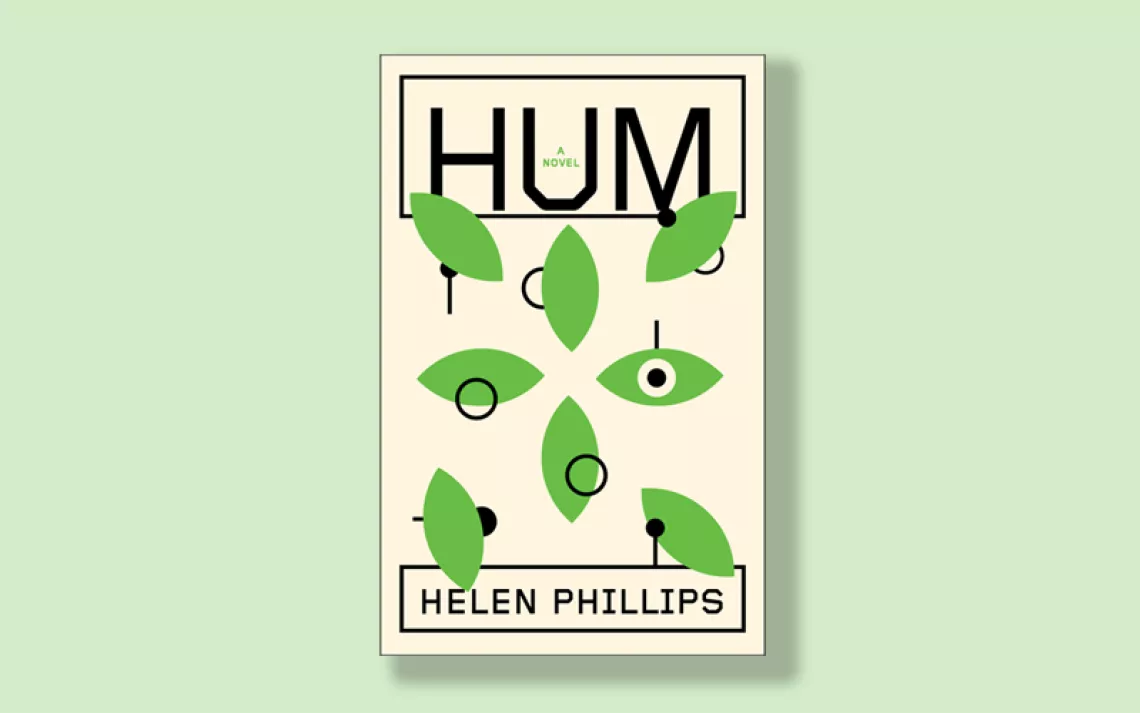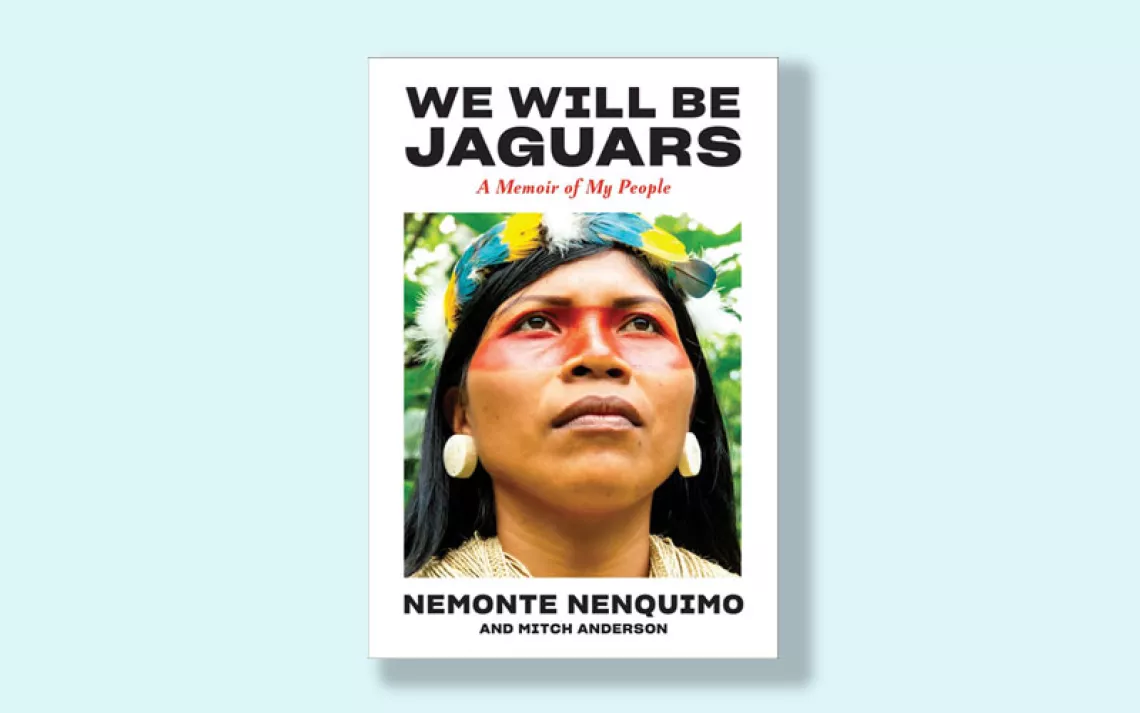Roy Scranton Calls for Acceptance of a Future Defined by Climate Change
His new book "We're Doomed. Now What?" makes pessimism palatable

Photos courtesy of Soho Press
Iraq War veteran and climate change philosopher Roy Scranton doesn't mince words. His new collection of essays on war and climate change, out this week from Soho Press, is titled We're Doomed. Now What? And readers brave enough to pick it up will discover the direct and unvarnished commentary it promises.
"The time we've been thrown into is one of alarming and bewildering change—the breakup of the post-1945 global order, a multispecies mass extinction, and the beginning of the end of civilization as we know it,” Scranton writes. “Not one of us is innocent, not one of us is safe."
Scranton made a name for himself in 2013 with the New York Times essay "Learning How to Die in the Anthropocene," the site's most emailed story on the day it was published. In 2015, the piece was expanded into an eponymous book, published by City Lights.
In Learning to Die in the Anthropocene: Reflections on the End of Civilization, Scranton argues that his tour of duty in the army—which brought with it the daily knowledge that he could be killed at any time—taught him a way of coping with the dire news about climate change. This was exemplified, he says, by his homecoming to the destruction incurred by Hurricane Katrina.
Scranton went on to earn a PhD in English at Princeton and to author 2016’s War Porn, a critically acclaimed novel that observes the war and its consequences from the perspectives of soldiers and civilians, Iraqis, and Americans. He now teaches English at the University of Notre Dame.
In a recent telephone interview with Sierra, Scranton described the personal impact of writing that original essay for the Times as "huge." "The essay opened up the possibility to write the book Learning to Die,” he said. “That led to opportunities to do more reported journalism, to do longer pieces like ‘Back to Baghdad,’ and a piece for The Nation about the Northwest Passage."
We’re Doomed showcases those and other later assignments. Taken together, they reveal Scranton's wide range and impassioned erudition. Whether writing about the military violence of Star Wars in "The Fantasy of American Violence," hurricane preparations in Houston in "Anthropocene City," or his own experience as a "bad Buddhist" in "Climate Change and the Dharma of Failure," Scranton addresses his subjects with passion, precision, and empathy.

Based on its title, some readers might expect We're Doomed to function as an unremitting rant against the people and agencies actively destroying the environment. But Scranton is a more subtle and versatile writer than that. While he has many disturbing factoids about climate change at his fingertips—and deploys them with precision and accuracy—the essays benefit from the author’s tendency toward self-deprecation.
Scranton is at his best when he veers personal, as in "War and the City," in which he counts the costs of enlisting in the army at the time he did, and "Climate Change and the Dharma of Failure," in which he contemplates his own flawed nature. In “Back to Baghdad,” he reports on various external and internal revelations with honesty and vividness. And Scranton is not afraid to experiment, as he proves in "Rock Scissors Paper," which combines the real-life prospect of the Anthropocene with an alternative view from Sir Arthur Conan Doyle's fictional Professor Challenger, who penned the newspaper headline, "Methane Belch to Wipe Out Human Race."
The author, who describes his background as blue-collar military (his father, grandfather, and various uncles all served in the navy) turned his attention to climate change after surviving his own tour of duty in 2006. "For me, that's the big thing," he told Sierra, "because I'm deeply—I guess I would use the word 'pessimistic,' or at least other people would—about what our future looks like."
Indeed, Scranton believes things are just going to keep getting worse in a variety of ways. "It’s not just rising seas, but political effects, secondary effects from climate change, and a host of other problems connected to human over-development on the planet, our fossil fuel dependence, and so on. It's never going to get better. In some ways, whatever kind of day, today is as good as it's going to be ever again in our lives."
How to cope with such an outlook? "What can I do today to increase compassion in the world?” Scranton routinely asks himself. “What can I do to make something in the world a little better? What can I do right now to mitigate or heal some of the damage that is inevitable and that is just going to keep increasing?"
Scranton sees his Notre Dame students struggling with views of the future too, though he notes, "A lot of my students see the future pretty clearly. They have a strong sense that things are not going well and that they're not going to go well.” Still, they cope. "They're doing what they're told. 'Work as hard as you can. Don't waste your time. Outperform your peers. Make sure you get a job.'"
While climate-change-centric nonfiction is hardly in short supply, Scranton took a different approach to the subject in We're Doomed. Now What?
"It's not a book about weather patterns or the Arctic specifically," he said. "It's not about how we could build carbon scrubbers. The through lines of the book are these questions about how we tell stories that organize our lives in meaningful coherence. What are the costs of these stories? What are the limits of these stories? How can we think outside these stories when they don't match reality?"
The title essay creates a framework for the book as a whole. In it, Scranton starts by acknowledging the chaos of our times, in which we respond to the headlines according to our prejudices. He writes, "Nihilism defines our current moment, though in truth it's nothing new." Suspecting that apocalyptic planetary warming is too late to stop, Scranton turns to Frederich Nietzsche, "one of Western philosophy's most incisive diagnosticians," and contemplates the philosopher's statement "Man will sooner will nothingness than not will." Even as we "stand on a precipice of annihilation that Nietzsche could not have imagined," Scranton sees the quest to make meaning from life as our only salvation.
He writes, "If it's true we make our lives meaningful ourselves and not through revealed wisdom handed down by God or the Market or History, then it's also true that we hold within ourselves the power to change our lives—wholly, utterly—by changing what our lives mean. Our drive to make meaning is more powerful than oil, the atom, and the market, and it's up to us to secure the future of the human species."
Although war and climate are the main subjects, Scranton's prose ranges in tone from the journalistic to the lyrical, and the essays in We're Doomed allow him to explore the making of meaning through a variety of contexts—including poetry, art, and terrorism. He addresses Star Wars ("Mr. Lucas's Wagnerian space opera") and Clint Eastwood's American Sniper ("So goes the myth of the trauma hero"), Black Lives Matter ("This is a story about bodies and texts. Texts and difference. Bodies and violence") and Houston before the flood ("Imagine gray-black clouds piling over the horizon, a sublime spiral hundreds of miles wide. Imagine climate change. Imagine a happy ending").
Scranton concludes We're Doomed with an essay he says was particularly difficult to write: "Raising a Daughter in a Doomed World." It is a reflection on becoming a parent with his partner, Sara Marcus, a fellow Princeton PhD, and the author of Girls to the Front, about the Riot Grrrl feminist punk movement.
"It's an essay I had to do," Scranton said. "But it's something I have to keep working on. It's hard to think about her life in the future. It's one thing to say, 'Oh, yeah, my life is going to be shitty. I just have to accept that.' It's another thing completely to say, 'Oh, yeah, the life of this person I brought into the world—my little girl—her life is going to be shitty.' That's just harder to accept."
He continued, "Humans have had difficult lives for all of human existence. We come in with this expectation of progress and material plenty, comfort, and ease and safety. That's not how my daughter's life is going to go. And that's OK. Humans can still live rich, meaningful, joyful engaged lives, even under the most difficult circumstances."
What does Scranton hope to accomplish, exactly, with the new essay collection?
"To reach as many people as possible with the idea that we're doomed," he says. "We need to be having a conversation about how this civilization changes into something else. The more we try to hang on to an old way of doing things, the more unprepared we're going to be for the change that's coming."
Meanwhile, the author focuses his own vision on daily life with his family.
"I try to take some time to do things that are joyful and do work that is of value for its own sake. I try to balance that with attending to these other questions that seem urgent and necessary."
 The Magazine of The Sierra Club
The Magazine of The Sierra Club



